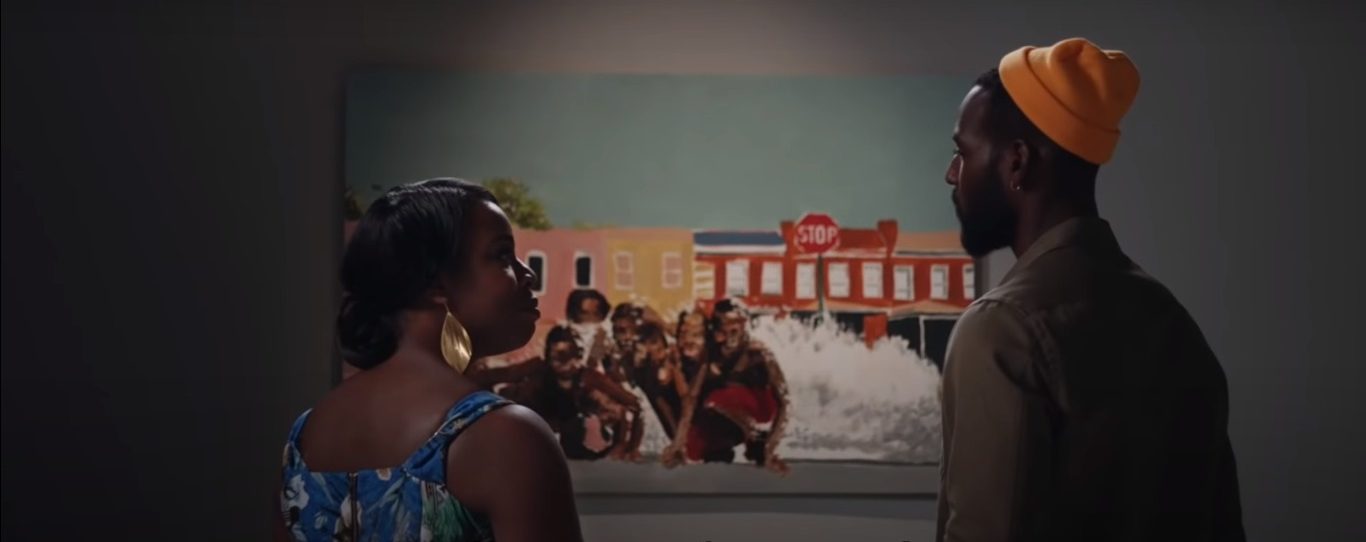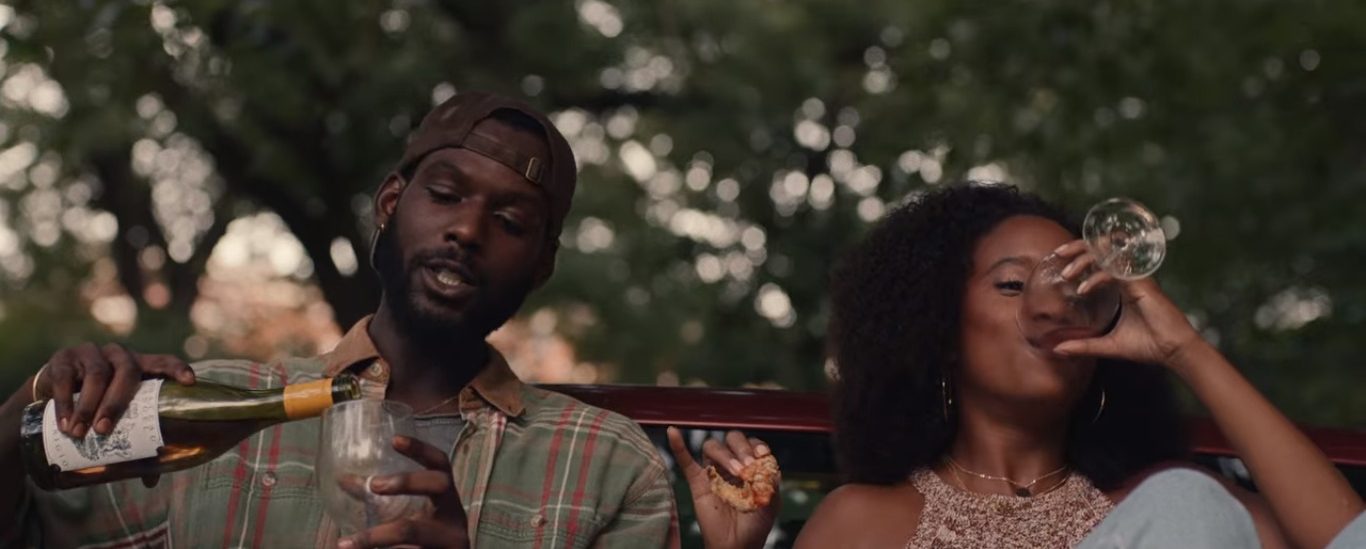‘Really Love’ is a romantic drama that centers around an unexpected whirlwind romance between a budding artist and a law student. What starts off as a blissful relationship soon faces the pressures of the real world and the unfortunate intricacies of open communication. However, what possibly poses the biggest obstacle is the central characters’ ambitions and their struggle to balance their individual journeys and shared life. A backdrop of gentrification and a vibrant, if slightly biased, art scene all add realistic touches to the film, and the ending masterfully echoes the complexity and melancholic beauty of real-life relationships. So could ‘Really Love’ be based on a true story? Let’s find out.
Is Really Love a True Story?
No, ‘Really Love’ is not based on a true story. The film is co-written by Felicia Pride and Angel Kristi Williams and inspired by an original script penned by the former. The two co-writers of the film reportedly met through a mutual friend, and Pride, who had seen Williams’ work in earlier short film projects, suggested she direct it. They both passionately describe the film as a “labor of love” and have mentioned the 1997 romantic drama ‘Love Jones’ as one of the inspirations for the movie.

In fact, the director also took inspiration for the color tones of ‘Really Love’ from ‘Love Jones,’ while Pride seemingly took inspiration from its unconventional and realistic portrayal of relationships. Williams was also reportedly inspired by ‘In the Mood For Love,’ ‘Love & Basketball,’ and ‘Nothing but a Man’ for her feature directorial debut. There is also a good amount of real-life inspiration that the writer and director brought into their film.
Both hailing from Baltimore, where the film was also largely shot, Pride and Williams seemingly have strong memories of neighboring Washington D.C., where ‘Really Love’ is set. The former was reportedly living in Washington D.C. when she first began writing the original screenplay and also spent her formative years as an artist in the city. It comes as no surprise then that Isaiah’s journey to becoming a successful artist in D.C. is laden with subtle details and pearls of wisdom like, “The power of your work lies in your hunger,” dropped by the incomparable Uzo Aduba (‘Orange is the New Black‘) who convincingly essays an intensely insightful and influential D.C. art gallerist.
For her part, Williams has reportedly seeded her movie with the experience of Black artists and how their success can depend on the (unfair) value assigned to their work by the powers that be. However, in a move to flip that narrative, she introduces Aduba’s character, a black woman who wields the power to make or break artists’ careers. Interestingly, the artist who actually created the paintings that stand in for Isaiah’s work in the movie, Gerald Lovell, read the script (about a struggling artist trying to get his first solo show whilst falling in love) and said that it matched his own life! Lovell seemingly had his own big art show 3 years on.
‘Really Love’ encapsulates a lot of realistic human experiences that transcend the boundaries of race, socio-economic factors (like the subtle but pointed allusions to gentrification), and the journey of an artist. Through their inspiration and real-life experiences, the film’s writers and director have created a story that feels as nuanced and complex as real life but remains heartfelt enough to pull at the audience’s heartstrings.
Read More: Really Love Ending, Explained


You must be logged in to post a comment.